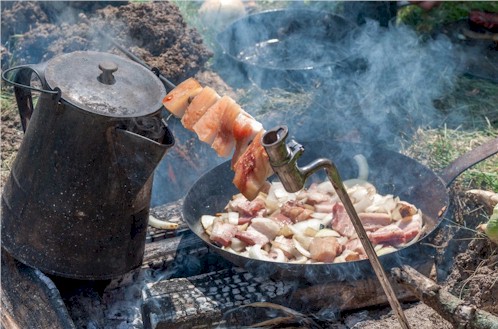Presented by Students in
Foodcultura: The Art and Anthropology of Cuisine,
University of Chicago, Autumn 2019
The Chicago FoodCultura Clarion, Issue 1
The Chicago FoodCultura Clarion, Issue 2
The Chicago FoodCultura Clarion, Issue 3
The Chicago FoodCultura Clarion, Issue 4
Yoon-Jee Choi’s analysis of cakes from Roeser’s Bakery through the eyes of a Bauhaus historian.
Eli Bec’s discussion of ofrendas prepared for Día de Muertos (Day of the Dead altars) and her own personal ofrenda
Alana Ferguson’s musings on cotton candy as an art form.
Maisie Watson and Daniel Simantob explored the intersection of public and private dining experiences at Sinhá, a Brazilian home-restaurant in Chicago and in their own apartment.
In November we were treated to Maggi Galaxy, a presentation by Stephan Palmié, Professor of Anthropology at University of Chicago and Antoni Miralda, Barcelona-based artist and founder of FoodCultura. They are collaborating on a Chicago-focused project supported by a Gray Center Mellon Collaborative Fellowship, exploring the intersection between food, art, and other forms of cultural exchange. Continue reading

